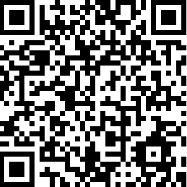Rejection of Patent Application due to Negligent Investigation, PixArt Won Lawsuit against the Intellectual Property Office
2010/11/22 TaiwanPixArt Imaging Inc. filed an invention patent application with the Taiwan Intellectual Property Office (TIPO) for their invention “Image Navigation Chip”. Unable to receive grant for their application after 7 years, PixArt sought justice from the IP Court. The Verdict revealed that the TIPO did not undergo investigation before issuing a Rejection against PixArt’s patent application. The Judge could not stand it this fact; therefore, ruled against TIPO, and further emphasized in the Verdict that PixArt’s patent application should be allowed for registration.
In the Verdict, the Collegial Judges including presiding Judge Kuo-Cheng Chen, Judge Jhong-Sing Chen and Judge Sung-Mei Hsiung pointed out that the Rejection issued by the TIPO for PixArt’s patent application is “illegal”.
The Collegial Verdict pointed out that even though patent protection is territorial, in relation to the application for “image navigation chip”, the TIPO was not able to prove that its independent claims were not inventive, nor could the TIPO prove that its dependent claims were not inventive. PixArt’s application consisted of 3 claims that utilizes the prior art, which were necessary steps for implantation of the imaging navigation chip patent; therefore, the application did not violate any regulation of the Patent Law in respect to the disclosure of the claims. Furthermore, there were no other evidence waiting to be further investigated, or any reason to reject the application; therefore, the TIPO was ordered to grant the application filed by PixArt. Appeal could still be filed against this Decision.
In December of 2003, PixArt filed an invention patent application for “image navigation chip”, which later received a Rejection issued by the TIPO on February of 2005. PixArt requested for Review, however, the TIPO maintained the Rejection on May 2007. PixArt requested for Re-examination and submitted a revised Specification for the application, yet the TIPO still rejected the application on July of 2008. PixArt filed an Appeal against the Rejection; however, the Appeal was rejected by MOEA in September 2009.
The same invention was also filed in the United States and China, where the applications were granted in July 2007 and November 2008 respectively. The fact that those two countries have granted the application showed that the invention was inventive. Not convinced by TIPO’s Rejection, PixArt filed a lawsuit with the IP Court, as the rejection did not specifically point out the reason for the rejection.
According to the Administrative Procedural Act Articles 9 and 10, an administrative authority shall take all advantageous and disadvantageous circumstances to the parties into consideration in its charge. In exercising administrative discretion, an administrative authority shall not transgress the scope of its power of discretion set forth by law and shall comply with the purposes of the authority conferred by law or regulations. According to Patent Regulation Article 16 item 1, an abstract shall consist a summary of the disclosure as contained in the patent application for invention or utility model. The summary shall be drafted in a way that allows clear understanding of the technical problem to be solved, the gist of the technical solution to that problem, and the principal usage of the invention or utility model. In principle, the text shall not exceed 250 words. If the abstract contains chemical formula, the formula that best characterizes the distinctive features of an invention shall be disclosed. Article 29 of the Patent Regulation also prescribes that when the Patent Authority notifies the patent applicant of appearing for an interview, performing experiment(s), supplementing model(s) or sample(s), or making amendments to specification, drawings or description of figures, if the applicant fails to conduct any act pursuant to the contents of the notification, the Patent Authority may continue to proceed with the examination based on the information available.
The Taiwan Intellectual Property Office told their side of the story regarding PixArt’s patent application.
The TIPO rejected the invention application “image navigation chip” filed by PixArt Imaging Inc. based on insufficient disclosure of the Specification and non-inventiveness. Four references were cited in respect to the inventiveness of the invention. PixArt disagree with the Decision and filed Appeal and administrative lawsuit accordingly. The IP Court dismissed the Rejection issued by the TIPO and believed the invention should be allowed.
The TIPO said after a patent application is granted, its Specification would be published and its content should allow the public to understand and carry out the invention. The TIPO believed that the application did not fully disclose technical features regarding track process circuit and track process pattern, however, the IP Court had a different view in this matter. The Court believed techniques for resolution conversion processing by shift quality displacement and track smoothing processing are common knowledge in the technical field; therefore, PixArt has duly and fully disclosed the technique.
Regarding the patentability of the invention such as inventiveness, the TIPO did not find the invention to be inventive based on the four cited references: “optical mouse chip with silicon retina structure”, “CMOS image sensor for suppressing the degradation of spatial resolution and producing compressed video signal”, “CMOS image sensor with a chopper comparator for performing analog-related double sampling” and “optical mouse with integrated camera device”. The IP Court also viewed this matter differently, believing that none of the references disclosed the technical feature of PixArt’s invention “image quality judgment”. Furthermore, the combination of the cited references was not sufficient to prove that the invention was not inventive.
Regarding the differences in interpretation of the aforementioned, the TIPO indicated that they would respect the Decision made by the Court; however, based on the cited references, they did not “rejected the application without any investigation”.
Organized and translated by Jeffery Chien
International Affairs


